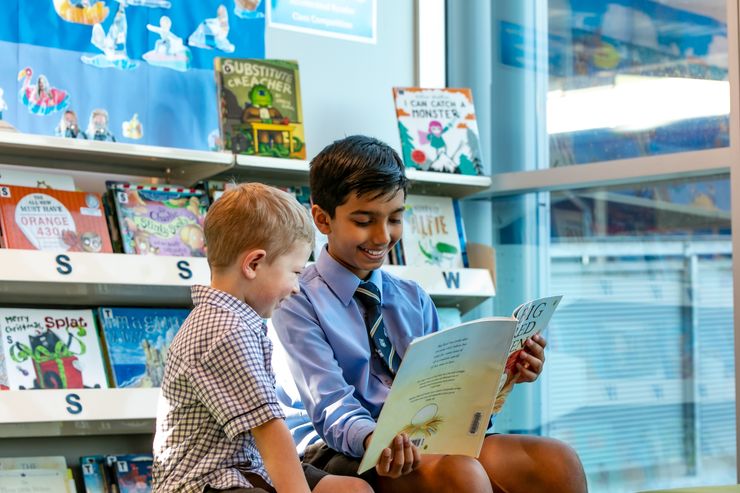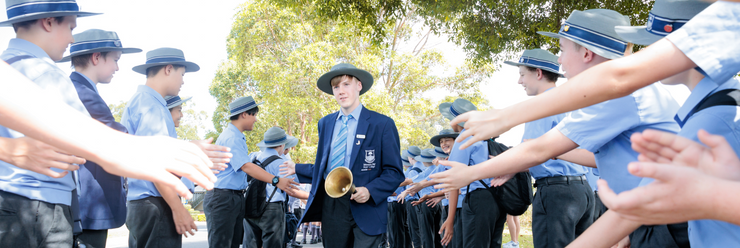It was quite the honour to be the first school in Australia to host this workshop and invite fellow schools to MBBC to learn together. The topic chosen by the QLD PYP Network was ‘Leading the learning, 2’. We engaged a workshop leader to fly up from Sydney for the professional development experience that lasted three days.
Leading the learning is all about understanding the various intelligences that we display, focusing on our strengths and areas of growth, and looks at the environment and conditions our leadership provides. I love that the PYP, overseen by the IBO, has always focussed its attention on best practice research. It keeps staff on track for providing rigorous evidence-based teaching experiences.
When we are working with the boys at MBBC through their Units of Inquiry (UOI), we refer to the big ideas as ‘The Conceptual Understandings’. These apply also to teacher workshops; in leading the learning, the focus was on;
- Developing an understanding of leadership opportunities within a learning organization.
- Inquiring into the IB’s leadership intelligences as tools to develop agency in an IB global context.
- Constructing an ongoing understanding of your school as a learning organisation.
- Making sense of your school development journey as you plan for IB evaluation and beyond.
These big ideas focussed our learning as we worked through a range of shared learning experiences, as students do within UOI’s.

A couple of powerful quotes resonated with me during the early stages of the workshop.
“Leading the learning means creating powerful learning opportunities for students, professionals and systems, and motivating or compelling participants to take advantage of those opportunities.” Copland, M.A., & Knapp, M.S. Connecting Leadership with Learning, ASCD, 2006 p23.
“Leaders become teachers who facilitate learning, prompt their colleagues to think in divergent ways, and structure opportunities for them to carry on their thinking productively.” Copland, M.A., & Knapp, M.S. Connecting Leadership with Learning, ASCD, 2006 p180
It’s been a focus of Leadership at MBBC to promote ‘buy in’ from the teachers and to upskill, promote and provoke their learning so that we can continue to stretch the thinking of our staff. This ultimately improves the outcomes for our students. Examples that come to mind in recent times include being one of the first independent schools in QLD to move towards progressive online reporting and growth feedback. This change led the way to improved reporting systems and provided parents with informed work samples that demonstrate how a student is tracking through the year.
In addition, implementing changes to the PYP through the enhanced PYP recommendations, which included changing our curriculum planning. Our new planner meant that all teachers and specialists are engaged in the planning, teaching, learning, and assessing process collaboratively. It’s not an easy task to bring so many staff together and focus and align their skills to improve the experiences for the boys, but I believe we have established the right conditions for this to take place successfully.
Our recent success at with the Independent Schools Queensland (ISQ) Futures project (which saw our school selected to show its project in Brisbane and Cairns) is another standout. Facilitated by the teacher, our boys have had the ability to liaise with industry experts and create their own successful social entrepreneurship projects at the end of 2021. While the entrepreneurship experience was the project’s outcome, the focus was on providing students with key, transferable skill development experiences. As an example, the real-world application of 21st century skills, which in the PYP present as the 'Five Approaches to Learning': Social Skills, Thinking Skills, Self-Management Skills, Research Skills, and Communication Skills. These skills were vital when students were working in their groups to produce and sell their products, and it is these skills that will be transferable in all learning, both in preparation for their Year 6 Exhibitions, and of course later in life.
“Leadership is the process of influencing others to understand and agree about what needs to be done and how to do it, and the process of facilitating individual and collective efforts to accomplish shared objectives.” - Yukl, G. (2010). Leadership in organizations (7th ed). Upper Saddle River, NJ: Prentice Hall. p. 8

While this workshop continued to allow us to reflect on what was working well within the MBBC Primary context; it also made sure that we were focussing on providing the conditions that empowers staff to be pedagogical players. To embody the Learner Profile the same way we ask our students to - to take risks and demonstrate the attitudes and skills of lifelong learners.
We are working to create an MBBC ecosystem that mirrors that of the IB. We continuously endeavour to enhance these elements within our school.
Purpose:
A shared vision and mission grounded in creating a better world through the nurturing of students who are internationally minded – a reference to the IB learner profile as a description of the attributes of international-mindedness
Environment:
Global community and systems; processes and resources grounded in authorisation, development and evaluation (Many of you were part of our evaluation experience in 2020)
Culture:
Framed by the five mandatory policies, our school policies, such as language, assessment and learning enhancement, are living and breathing documents that influence the way we educate.
Learning:
Focused on learning – philosophically grounded in constructivism and a pedagogy arising out of this (approaches to teaching and approaches to learning)
Peter Senge has defined the learning organisation as one “in which you cannot, not learn, because learning is so insinuated into the fabric of life.” It is idealistic but these are the conversations, workshops, staff meetings and cultural norms that we work towards as we adapt to the changing needs of our students.
“A pedagogical leader keeps the organization focused on the teaching and learning process among the children, staff, and families.” -Margue Carter



